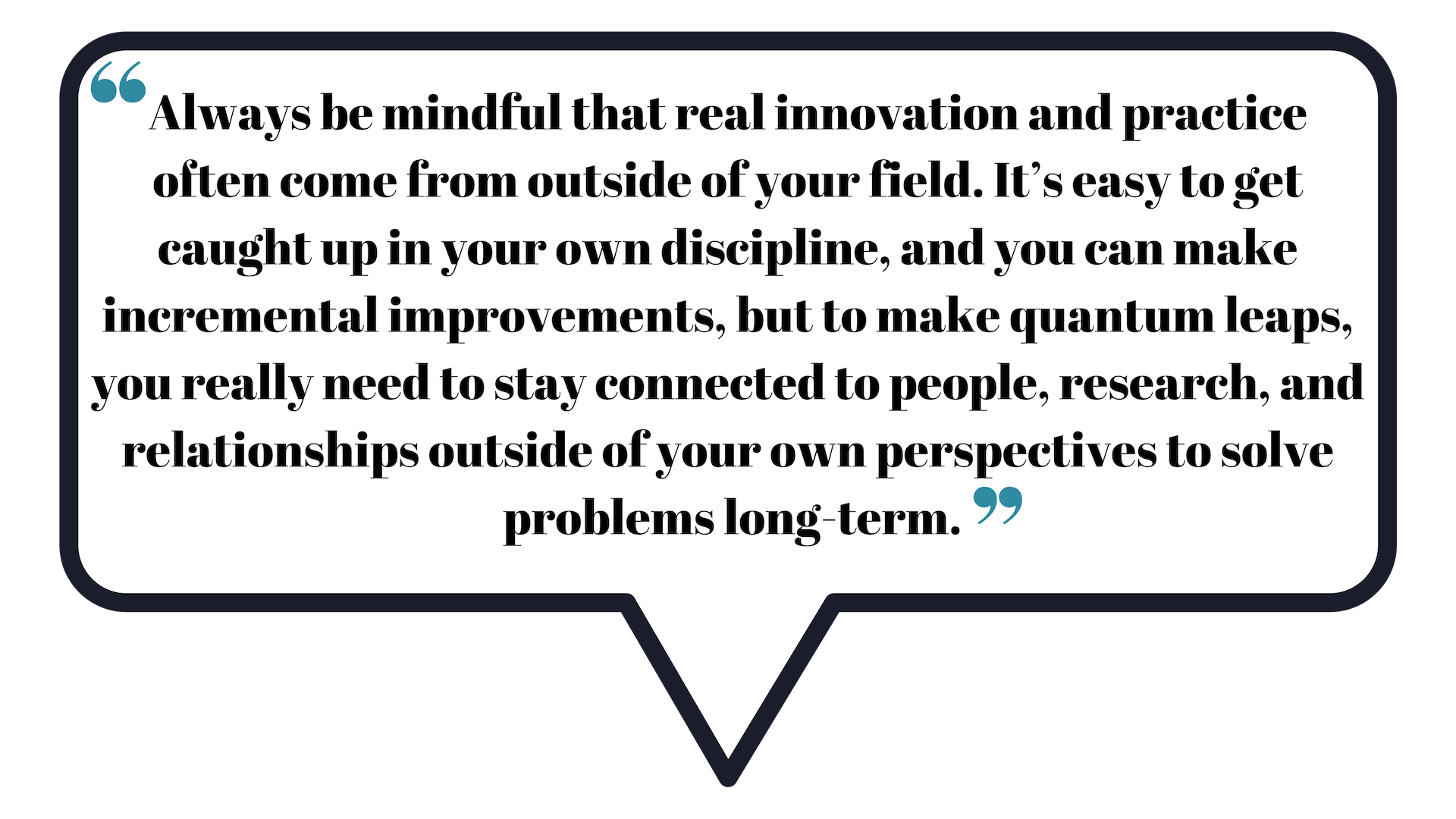Dr. Richard Scott (MPH ’92) is the Public Health Manager and Community Health Services Administrator for Carver County. He has been in this role for 2 years after spending 10 years working in education leading development and grant seeking efforts for school districts. Richard was exposed to public health at a very young age through the work of his parents, who served as medical missionaries in India. Richard’s father went on to serve as the Chief of Surgery and Chief of Staff at North Memorial Hospital. He would bring Richard along to work with him, which Richard credits as helping to establish his value system of acting with humility, honoring other cultures, and approaching healthcare holistically.
Richard Scott received his MPH in Maternal and Child Health (MCH) from the University of Minnesota following a Bachelor’s of Science in Nursing from St. Olaf College. Having spent time working as a nurse, grants manager, county planner, and earning a doctorate in education, Richard describes his return to public health work as “feeling like I am home.”
Richard’s first job in public health was with Aitkin County as an MCH coordinator tasked with teaching family planning, parenting classes, and much more. “I was as green as can be,” he recalls, “so I reached out to mentors from local and state public health agencies. I think they felt bad for me, so they sort of took me under their wing.” With the assistance of mentors, Richard was able to help expand the child and teen check-ups program, start a family planning program, launch a parenting initiative, and expand school health nursing. He credits this success to developing connections stating, “All of that happened because I had someone who could provide guidance to me.”
Richard built on this mentoring experiencing when he pursued his MPH and made sure to have connections. “I believe the best thing that happened to me during school was building a professional relationship with my main mentor, Dr. Linda Olson Keller,” he said. While in school, he served as a teaching assistant to Dr. Robert Ten Bensel, who at the time was chair of the MCH Program. “The actual experience of being a TA was okay, but this position afforded me direct access to one of the nation’s leaders in MCH at the time.” He claimed it allowed further connection to mentors that provided support long after graduation in the form of references and opening doors through their credibility and connections.
 Compass and Community
Compass and Community
One of Richard’s favorite parts of working in public health is the connection to community and feeling well-networked with those that live, work, and play in his community. In Richard’s current role as the Public Health Manager and Community Health Services Administrator, Richard seeks to be an innovative and supportive leader grounded in humility. Richard works to create a work environment that feels safe while cultivating a sense of significance and belonging so that his staff can feel comfortable challenging themselves.
Richard approaches his public health leadership role from his personal philosophy of “having a compass more than a map. Being clear on what your values are and aligning them with key public health principles can lead to more sustainability.” In his work with the community, Richard is passionate about furthering the understanding of how social determinants impact health. “The sophistication and understanding of how social dynamics can influence a person’s health are a lot farther along than when I finished my MPH,” Richard noted, “and we are scientifically much better at understanding the confounding characteristics of social determinants of health” when designing research studies and analyzing data. Richard highly values taking the time to meet people and developing trust with community members as a community knows what is best for them, even if they can’t articulate it. “We need two-way collaboration and trust,” he says, to develop effective, sustainable interventions with meaningful input from those being served.

Richard takes this same approach when meeting with service recipients, service providers, and medical staff while striving for collaboration, openness, and honesty, saying “Most innovation is going to come from people outside of your profession.” In his work with medical professionals and hospital systems staff, Richard views the role of public health professionals as “bridges” to connect pre-existing healthcare systems with approaches that address barriers to healthcare, like trauma-informed care. He recalls learning about the important role of evaluation and especially the impact that stories have on shaping people’s opinions on what matters during his MPH coursework. “I learned that quality and impactful evaluation–and action research–requires both quantitative and qualitative data… which requires facts and stories. Evaluation skills and the ability to present your information, and story, are vital to advancing public health.”

Reflecting on his time as a student at the School of Public Health, Richard stated “I wish I could have earned a dual degree in MCH and Public Health Policy through the Humphrey School of Public Affairs.” Richard greatly enjoyed his Public Health Law class and learning about “the role that critical champions had in shaping public health policy and programming” during MCH foundations courses.
Richard’s advice to all MCH students is to build connections in all aspects of education, work, and community. “With connections, there is theoretically no limit to what you can know and learn because you are always learning from others. A mentor once said to me ‘If all that you’ve done is something you’ve done by yourself, you haven’t done much.’”
“Always be mindful that real innovation and practice often come from outside of your field. It’s easy to get caught up in your own discipline, and you can make incremental improvements, but to make quantum leaps, you really need to stay connected to people, research, and relationships outside of your own perspectives to solve problems long-term.”
Richard S. Scott, PHN, MPH, EdD holds a Bachelors of Science in Nursing from St. Olaf College, Master of Public Health from the University of Minnesota, post-graduate work in faith formation and congregational leadership at Luther Seminary, and completed his Doctorate in Educational Leadership from Capella University in 2016. In January 2017, he began his new role as Public Health Manager and Community Health Administrator for Carver County. Previous roles have included Director of Grants and Development for Waconia Public Schools; Owner and Principal Consultant with CHS Consulting; Acting Public Health Director, MCH Coordinator/Team Lead and Public Health Nurse for Scott County Public Health; Care Unit and Clinical Systems Supervisor and Public Health Nurse for Group Health (now HealthPartners); and Public Health Nurse and Community Health Program Coordinator for Aitkin County Public Health.
UPDATE: Richard Scott now works as the deputy division director of health services at Carver County Health and Human Services, where he also serves as the department head for public health & behavioral departments and the community health services administrator. He also serves as the local public health association president (01/2023).

